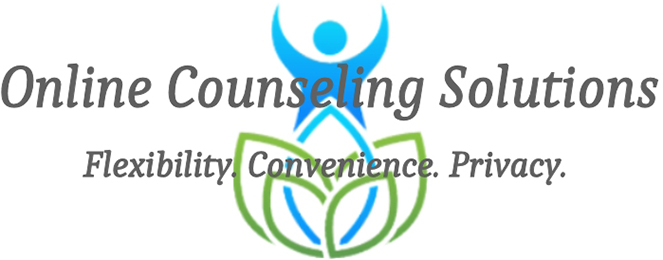By Hilary Akman, LMHC, LPC — Online Counseling Solutions | Serving Davie, FL and all of Florida through online therapy
Introduction
For many students, back-to-school season brings excitement. For anxious or introverted students, it can bring a knot in the stomach, racing thoughts, or a desperate wish for just “one more week” of summer. I remember just wanting to fast forward to the part when the school year felt routine and normal. Navigating the lockers, and finding my classrooms and doing it all in the allotted 6 minutes transition time brought on anxiety.
Shifting back into social settings, managing academic expectations, and adjusting to new routines or a new school in some cases can feel overwhelming. But with the right tools—specifically, Cognitive Behavioral Therapy (CBT) strategies—students can manage anxiety and enter the school year feeling more confident.
As a licensed therapist with years of experience supporting teens and young adults through life transitions, I’ve seen how CBT can empower students to navigate stress, build resilience, and even find moments of enjoyment in the school experience.
Understanding Back-to-School Anxiety
For anxious or introverted students, the transition to school can trigger emotional and physical symptoms.
Common Triggers:
- Fear of social rejection or judgment- this one is HUGE!
- Worry about grades and academic performance
- Uncertainty about routines, teachers, and peer groups
- Sensory overload from crowded classrooms and hallways
Signs to Watch For:
- Physical symptoms: stomachaches, headaches, insomnia
- Emotional changes: irritability, withdrawal, crying spells
- Mental patterns: negative self-talk, catastrophizing (“This year will be awful”)
- Avoidance behaviors: refusing to attend school or social events
Recognizing these early signs helps students and parents take proactive steps—rather than waiting until anxiety takes over. This is more than first day jitters. These symptoms above tend to worsen as time progresses. Neglecting these symptoms for months is why most counselors receive lots of referrals come October and November.
School guidance counselors can often be the first line of defense for students. Yet they are often overloaded with a full student caseload that they may not be able to give the time and attention this level of anxiety requires.
CBT Strategies to Reduce Back-to-School Anxiety
CBT focuses on the connection between thoughts, feelings, and behaviors. By targeting unhelpful thought patterns and replacing them with balanced, realistic thinking, students can reduce anxiety and build coping skills they can use throughout the remainder of the year.
1. Identify & Challenge Anxious Thoughts
- Identify it: Many anxious thoughts are “thinking traps,” like mind reading (“Everyone will think I’m weird”) or catastrophizing (“If I mess up once, my year is ruined”).
- Work through it:
- Catch it – Notice the anxious thought.
- Check it – Ask, “Is there real evidence for this?”
- Change it – Replace with a balanced thought: “It’s possible some people won’t notice or care—and I’ve handled new situations before.” or “One moment does not define my whole year”
- Example: Instead of “I’ll fail the class,” try, “I’ve passed before, and I can ask for help if I struggle.”
2. Behavioral Steps
Avoidance feeds anxiety. The more students avoid, the worse anxiety becomes. It is essential that parents don’t fall into a pattern of accommodating their child’s anxiety by allowing them to avoid everything that creates anxiety for them.
- Strategy: Create a “small steps” exposure ladder.
- Example ladder:
- Day 1: Wave to a classmate in the hallway.
- Day 3: Ask a simple question in class.
- Week 1: Sit with a peer at lunch for five minutes.
Gradual exposure builds confidence without overwhelming the student.
3. Social Skills Practice
Introverted or socially anxious students benefit from rehearsing common interactions:
- Role-play introducing yourself to a new classmate- siblings or parents make for great practice
- Practice asking for help from a teacher
- Learn how to set boundaries politely (“Thanks for inviting me, but I need some quiet time”)
This rehearsal reduces the “unknown factor” that often fuels anxiety. Plus it builds new skills.
4. Relaxation & Grounding Skills
Anxiety often triggers a fight-or-flight response. Calming the body helps calm the mind.
- Techniques: Box breathing (inhale 4, hold 4, exhale 4, hold 4), or simply inhale for a count of 4 and exhale for a count of 8, progressive muscle relaxation- that’s where you squeeze a muscle group really tightly and then relax- then continue throughout your body, or naming five things you see/hear/feel.
- Practice daily—don’t wait until you’re in a high-stress moment. This special way of breathing needs to be practiced in moments of calm so you know how to use it when you feel anxious
5. Back-to-School Routine Planning
Predictability reduces stress.
- Prepare clothes and school supplies the night before. Have your breakfast figured out.
- Plan a morning routine that includes at least one calming activity
- Schedule short breaks for downtime after school
When life feels more organized, the brain has more capacity to handle challenges.
When to Seek Professional Support
If anxiety becomes persistent or starts affecting grades, friendships, family life or health, it may be time to get professional help. A CBT-trained therapist can:
- Teach advanced coping strategies
- Provide a safe space to process fears
- Collaborate with parents and teachers for school support
In my practice, I work with teens in Davie, FL and across Florida through online counseling to make therapy accessible and comfortable.
Final Thoughts
Back-to-school anxiety doesn’t have to define the year. By identifying unhelpful thoughts, practicing social and coping skills, and using gradual exposure, anxious or introverted students can thrive in school. CBT isn’t just about reducing anxiety—it’s about building lifelong confidence.
If you or your student or child could benefit from personalized CBT strategies, I offer both in-person sessions in Davie, FL and online therapy for students throughout Florida.
Books on being an Introvert:

